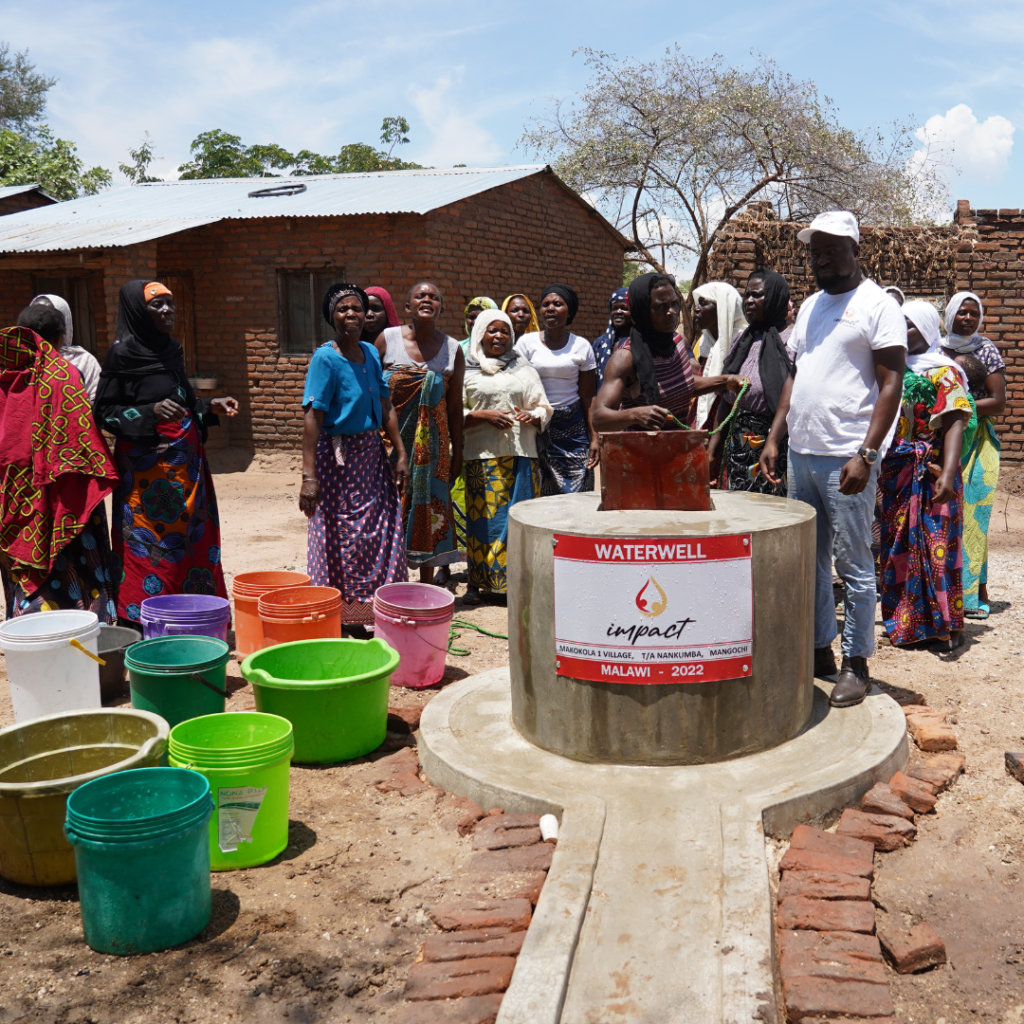How clean water stops the spread of disease
In Malawi, our team observes women trek up to the top of a steep hill in a remote village and crouch down next to an unprotected water source, which resembles a pond of muddy water.
The women, who wake up early in the morning, with the sun beating down on them, come with buckets which they fill up and carry back above their heads. This water is contaminated. And like another 2 billion people across the world, they are at risk of contracting illnesses as a result of the dirty water they consume. The water which the women carry back to their villages is not only used for drinking, but also for cooking, cleaning, hygiene, crops and for livestock.
As a result, diseases such as diarrhea, cholera, dysentery, typhoid and polio are rife. All of the deaths and illnesses caused as a result of contaminated water are preventable.
In countries such as Malawi, where health centers and hospitals are already overwhelmed with patients and are largely inaccessible for many people, the threat of disease caused by dirt water is even more critical.
According to the World Health Organisation, around 829,000 people die every year from diarrhoea, a direct result of unsafe or unclean drinking water and poor hygiene. This largely preventable cause of death can be solved through the provision of a well or borehole, which would provide locals with clean and safe water, which can then be used for consumption and cleaning.
In many parts of Africa where we operate, insects which live or breed in water can also contribute to the transmission of diseases such as dengue fever. By having a clean water source that is protected and covered, it can stop the breeding of these insects, which in turn will lessen the risk of disease spreading.
Clean water has shown a direct correlation with improved social, economic and health effects. When a community is provided with clean water, they are not only able to focus their efforts into other things, such as education and work, but they are also able to go about their daily lives without taking the risky journey to collect water from far away areas.
Most importantly, it stops the spread of disease, particularly among children and the elderly who are vulnerable.


Impact has a global reach. We are a humanitarian and development charity which operates around the world.

